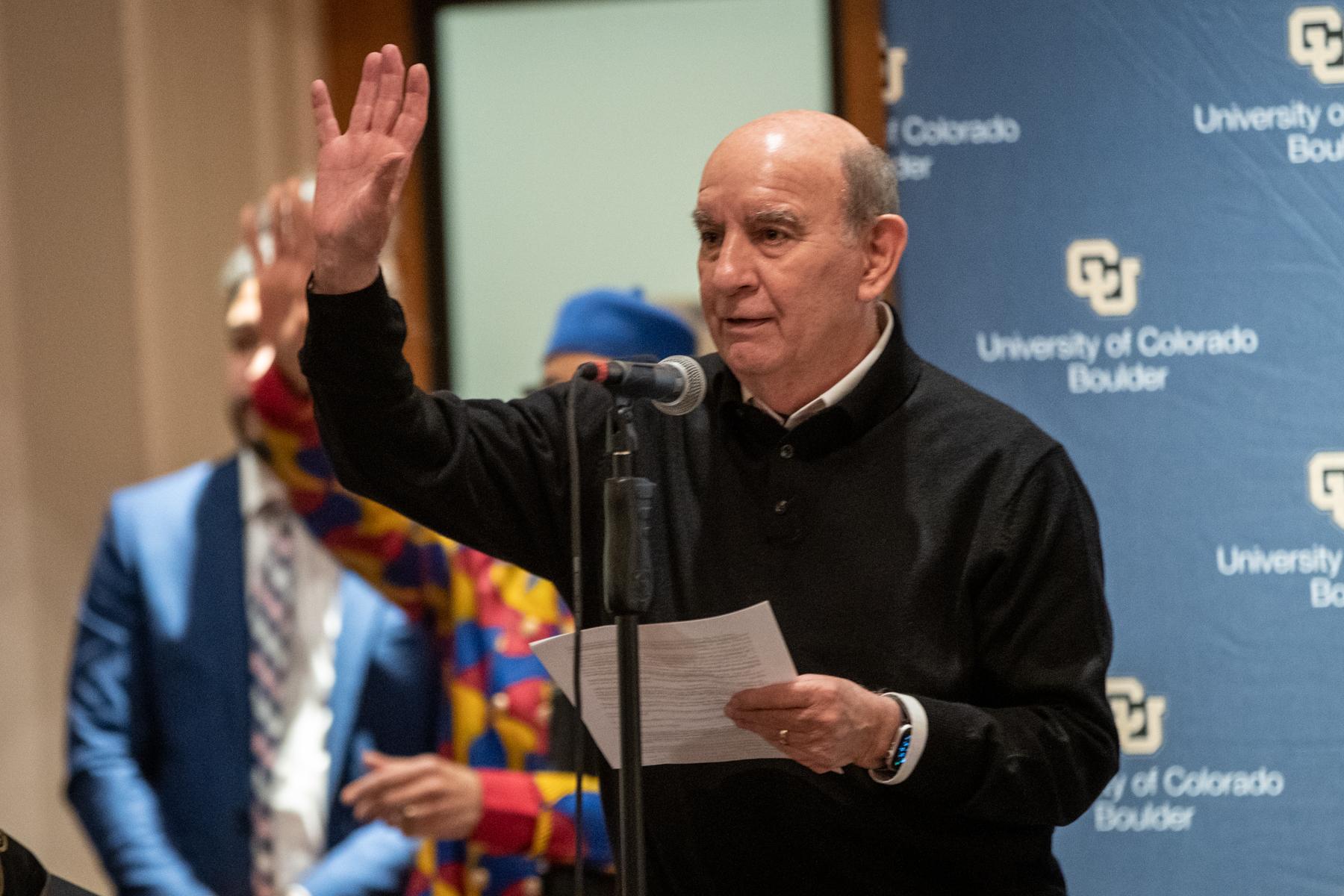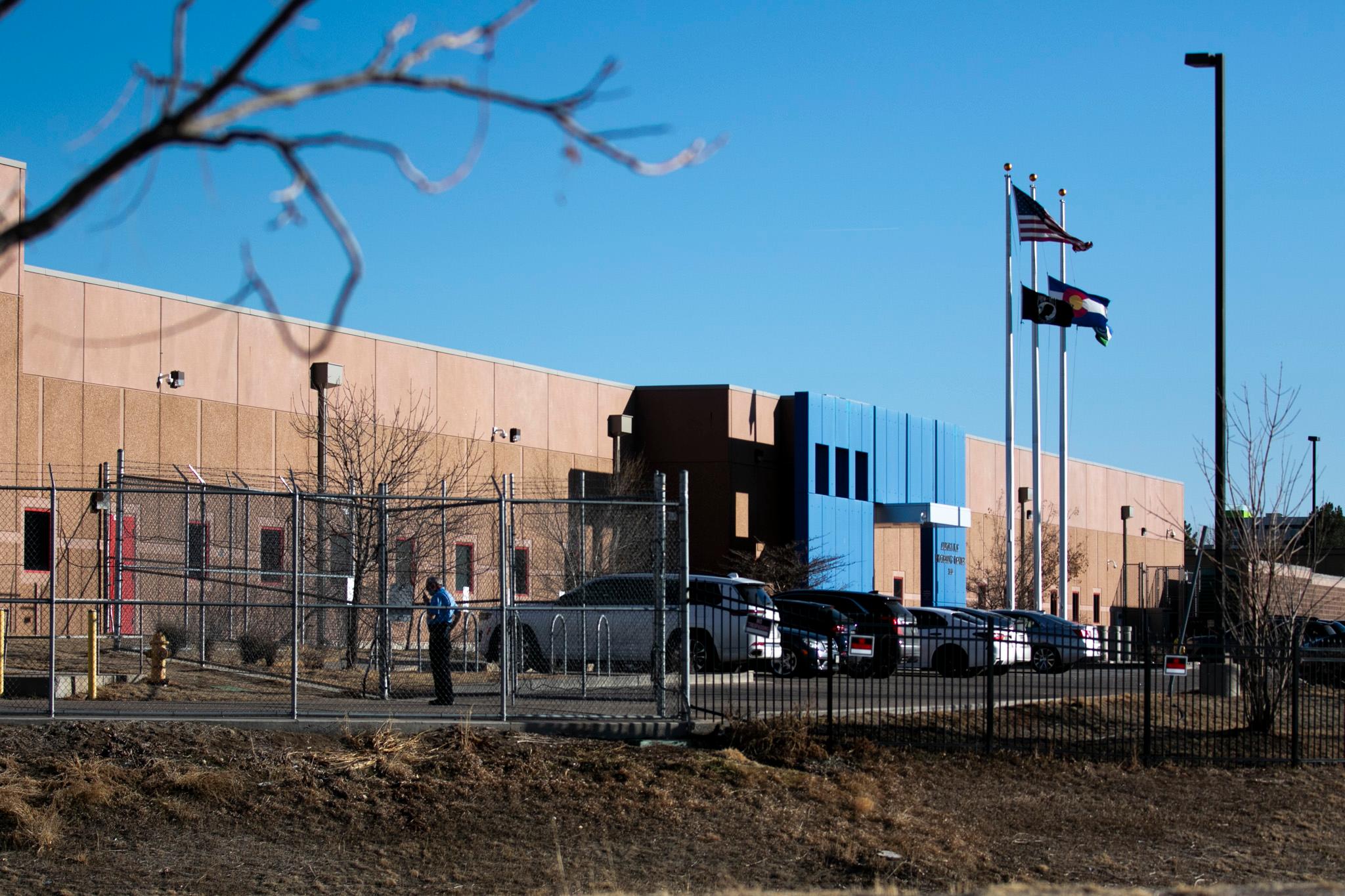
University of Colorado Boulder chancellor Philip DiStefano announced Tuesday he plans to retire as chancellor after nearly 15 years in the role and 50 years on campus.
The longest-serving chancellor in CU’s history, DiStefano will remain on the job until the position is filled. Information on a national search for his successor is expected in the coming weeks.
DiStefano plans to return to a faculty position in the School of Education, where he began his CU Boulder career as an assistant professor of curriculum and instruction in 1974. He has served as a faculty member, dean, associate vice chancellor, provost and chancellor.
“It has been such a rewarding and humbling experience to serve as chancellor of Colorado’s flagship university for the past 15 years,” DiStefano said during this year’s State of the Campus speech. “I am so proud of our faculty, staff and students and all that you have accomplished, and I also will treasure the many alumni, donors, parents and friends of the university I was lucky enough to meet.”
As chancellor, Distefano was the chief academic and administrative officer at CU Boulder, overseeing its academic mission and goals and day-to-day operations. Over his tenure, Distefano was passionate about making CU Boulder a nationally recognized research institution and improving the student experience.
“For 50 years, Phil has been devoted to CU Boulder,” said Todd Saliman, president of the University of Colorado system. “His commitment has been exemplary, positively impacting the lives of thousands of students, faculty and staff.”
DiStefano made his final case to the university in this year's State of the Campus speech
In his final State of the Campus speech, Distefano made student success and turning out graduates who are curious and civically engaged as his central focus.
“Successful CU Boulder students complete their degree programs with a high quality, meaningful, and accessible education in a reasonable amount of time, feeling like they belong to vibrant, diverse, and inclusive social and academic communities,” he said. “The value of a four-year degree is not just in what it offers the graduate, but what it offers all of society.”
Research initiatives and grants increased significantly during Distefano’s tenure with CU becoming a leader in climate, health, quantum science and engineering and space fields in particular. He guided the university through several successful fundraising campaigns to support scholarships, infrastructure and other campus needs. Last year, the faculty voted to approve a common curriculum that spells out the learning outcomes that every graduate should have.
“I’ve worked with Phil throughout the years and have always found him to be firmly committed to the faculty,” said Boulder Faculty Assembly chair Shelly Miller, a professor of mechanical engineering.
DiStefano’s announcement comes on the heels of this fall’s enrollment data showing record-high retention and graduation rates. Total enrollment increased nearly three percent over last year and first-year enrollment increased 6.2 percent from last year. About 30,000 undergraduates are attending CU this year,
“Our recruitment and retention efforts have led to our largest and most diverse incoming class in CU Boulder history this fall,” he said. He points to more robust and equitable academic support, better advising, more effective tutoring and other support faculty members provide in the classroom.
The university’s student body remains 65 percent white and has struggled to attract the state’s Latino students. An analysis of federal data showed CU Boulder has one of the nation’s widest gaps between first-generation Latinos and the state’s share of Latino high school graduates. But DiStefano, a first-generation college student, championed several diversity and inclusion efforts. This year, females make up half the first-year class and nearly a third of freshmen are students of color.
DiStefano guided the university through some tumultuous and challenging periods
With the pandemic economic downturn, came state funding cuts for universities, forcing CU to implement furloughs, a hiring freeze and temporary pay cuts. Tuition rose under DiStefano’s tenure due to state funding cuts and rising inflation.
But the university also instituted a tuition guarantee to help students plan how to pay for college. Tuition is locked for four years from the time a freshman enters college. The university also instituted the CU Promise which covers tuition and fees for all Colorado resident students who are eligible for the federal Pell Grant.
DiStefano steered the university through the COVID-19 pandemic as the campus shifted to remote learning. The campus also saw a number of free speech controversies sparked by conservative speakers at events, campus sexual assaults, and debates over whether efforts to boost diversity and inclusion were adequate.
Earlier this month, some CU faculty members and staff held a walkout, demanding better working conditions for non-tenure track faculty and staff. They represent more than two-thirds of the teaching staff at the university. Those at the rally were critical of the hundreds of millions they allege has been spent to advance the university’s image and mission – from buildings to football teams.
“We've seen the football program, ESPN, Fox, these corporations, private investors be prioritized while students and workers and faculty are ignored on repeat,” Jade Kelly, a worker at CU and president of CWA 7799, a collection of unions that includes United Campus Workers Colorado, told CPR.
Workers are asking for a 20 percent cost of living adjustment for graduate workers and staff, and a minimum per class rate of $14,000 for non-tenure track faculty. Workers say they are skeptical of any compensation plan that doesn’t include union recognition, collective bargaining, or a voice for university employees at the table, added Kelly.
In his speech, DiStefano said the university is working on a long-term compensation plan that builds on two dozen efforts to improve salary and benefits for faculty and staff over the last three years.
“While I am encouraged by these examples, I know we have a long way to go,” he said.
In a statement, Gov. Jared Polis thanked DiStefano for his decades of service.
“We are thrilled he is staying on as a faculty member to help educate the next generation of students,” he said.








